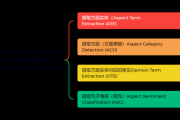本文目录导读:
- The Birth of Ancient City Names
- The Art of Name Testing
- The Significance of Name Testing in Urban Planning
- Conclusion

In the vast expanse of Chinese cities, there are countless names that carry the traces of ancient times. These names, often imbued with cultural significance, are not merely labels but windows into the past. They reflect the wisdom of ancestors, the harmony of nature, and the hopes for the future. In this article, we will explore the phenomenon of ancient city names and delve into the mysterious world of name testing, uncovering the secrets behind their "goodness" and "badness."
The Birth of Ancient City Names
The names of ancient Chinese cities are deeply rooted in history and culture. They are not random combinations of characters but carefully chosen symbols that encapsulate the essence of the city. For example, the name "Beijing" ( Beijing ), the capital of China, is derived from the word for "heavenly city," reflecting its status as the divine center of the Chinese nation. Similarly, the city of "Hangzhou" ( Hangzhou ) is named after the "Heavenly River," symbolizing its connection to the heavens and its role as a cultural and economic hub.
These names are not just arbitrary; they are the result of a long process of deliberation and reflection. Ancient Chinese rulers and scholars spent countless hours considering the meaning of each character and the overall connotation of the name. They wanted their cities to be a reflection of their ideals and aspirations. The name of a city is a testament to the wisdom and vision of its creators.
The Art of Name Testing
The testing of city names is a complex and multifaceted process. It involves not only the ysis of the name's meaning but also its phonetic, semantic, and even aesthetic qualities. The process of name testing is akin to an art form, requiring a deep understanding of Chinese culture and a sensitive ear for the nuances of language.
One of the most important aspects of name testing is the phonetic quality of the name. A good city name should have a pleasant sound, not only in isolation but also when combined with other words. It should resonate with the rhythm of the Chinese language and evoke a sense of harmony and balance. For example, the name "Shanghai" ( Shanghai ) is often considered a lucky name because its pronunciation is ooth and consonant-heavy, avoiding the harshness of "Tianjin" ( Tianjin ).
Another crucial factor in name testing is the semantic connotation of the name. A good city name should carry positive and uplifting meanings, reflecting the prosperity and harmony of the city. It should also align with the cultural and historical context of the city. For instance, the name "Nanjing" ( Nanjing ) is associated with the "Papal City," a title that reflects its strategic importance and cultural significance.
The use of lucky characters is also a key element in name testing. In Chinese culture, certain characters are believed to bring good fortune and success. Incorporating these characters into a city name can enhance its lucky status. For example, the name "Guangzhou" ( Guangzhou ) includes the character "Jia," which is considered a symbol of wealth and prosperity.
The Significance of Name Testing in Urban Planning
The testing of city names is not merely a cultural exercise; it has profound implications for urban planning. A good city name can enhance the city's identity, foster cultural exchange, and promote social harmony. It can also serve as a guide to the city's history and future, inspiring generations to come.
In addition, the testing of city names can also reveal the values and priorities of a society. It can provide insights into the cultural preferences and aesthetic sensibilities of the people, reflecting the collective consciousness of a nation. For example, the name "Shenzhen" ( Shenzhen ) is a combination of the Chinese characters for "Sky" and "Harbor," reflecting the city's vision of becoming a global financial hub.
However, the testing of city names is not without challenges. It requires a balance between tradition and modernity, between the preservation of cultural heritage and the adaptation to the demands of the modern world. In some cases, the pursuit of a "perfect" name can lead to the neglect of the city's unique identity, resulting in a loss of cultural essence.
Conclusion
The names of ancient Chinese cities are a treasure trove of cultural wisdom and historical insight. They are not just labels but windows into the past, reflecting the values and aspirations of their creators. The testing of city names is a complex and profound process, involving the ysis of phonetics, semantics, and cultural significance. It is a practice that requires a deep understanding of Chinese culture and a sensitive ear for the nuances of language.
In the context of modern urban planning, the testing of city names can serve as a reminder of the importance of cultural heritage in the development of cities. It can inspire us to think about the role of names in shaping the identity and future of a city, and to find a harmonious balance between tradition and modernity. As we continue to develop cities in the modern era, let us remember the lessons of the past, and let the names of ancient cities continue to guide us in our pursuit of a prosperous and harmonious society.
灵显禅寺求签在哪里?guide to finding the incense burnings at Xingxián Chessiland
号码,testing the magnetic energy of good or bad?
2016年黄道吉日接神,these dates bring prosperity and good fortune!
正月十四吉时表,auspicious times in the Chinese农历 calendar on the 14th of the first month
女性当头像,Choosing the Right Head Image for Good Luck and Attraction
好,用户让我写一篇关于十二星座的goodfaith的文章,首先我需要明确goodfaith在这里是什么意思。这个词通常翻译为或忠诚,所以文章的重点应该是探讨每个星座在日常生活中如何体现和忠诚
Can You Read People’s Fortune Tellings?A Guide to Understanding and Using Divination Methods
开工大吉,春节祝福语,shortest and sweetest wishes for a successful start!
街头算命,behind-the-scenes secrets of fortune-telling on the streets
阿婆算命鬼片,explore the mysterious world of ghost stories told by grandmother








